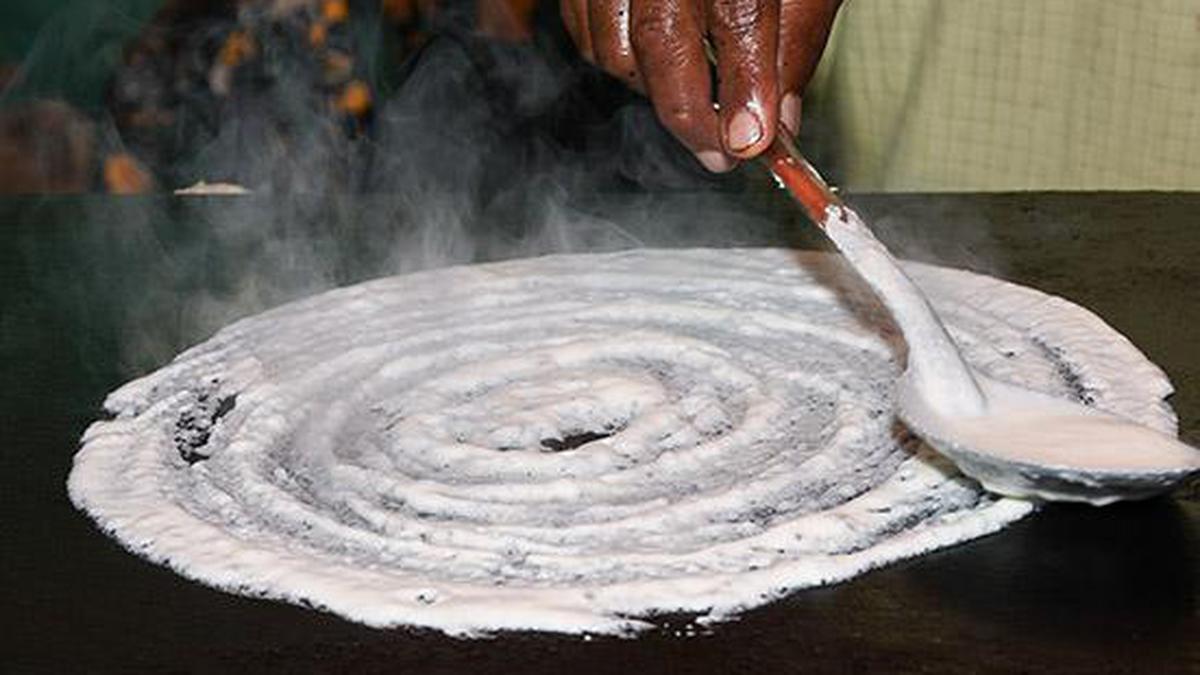An image captured by SUIT and VELC instruments (Aditya-L1 mission) shows dynamic activities of the Sun during May 2024.
| Photo Credit: ISRO
Two of the remote sensing payloads on board India’s maiden solar mission Aditya-L1 have captured images of the Sun and its dynamic activities during the solar storm, which occurred during the month of May.
Between May 8 and 15, several X-class and M-class flares erupted in the active region AR13664 on the Sun. This was associated with Coronal Mass Ejections (CMEs) during May 8 and 9.
ISRO said that, during these eruptive events, two remote sensing instruments Solar Ultra Violet Imaging Telescope (SUIT) and the Visible Emission Line Coronagraph (VELC) were in baking and calibration modes, respectively, and couldn’t observe the event during May 10-11.
However, SUIT and VELC doors were opened on May 14. Apart from capturing images, these payloads have made important observations.
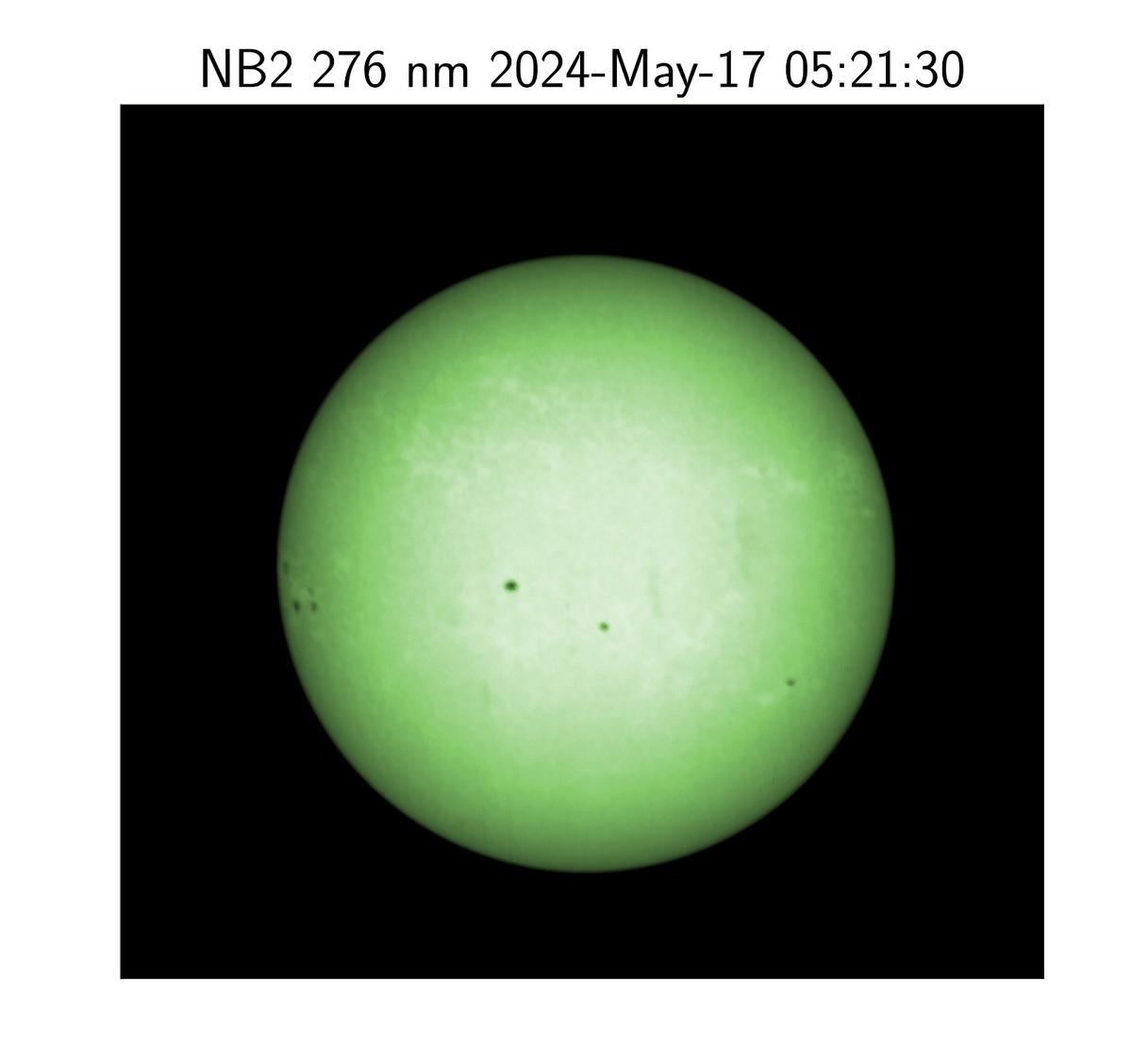
An image captured by SUIT and VELC instruments (Aditya-L1 mission) shows dynamic activities of the Sun during May 2024.
| Photo Credit:
ISRO
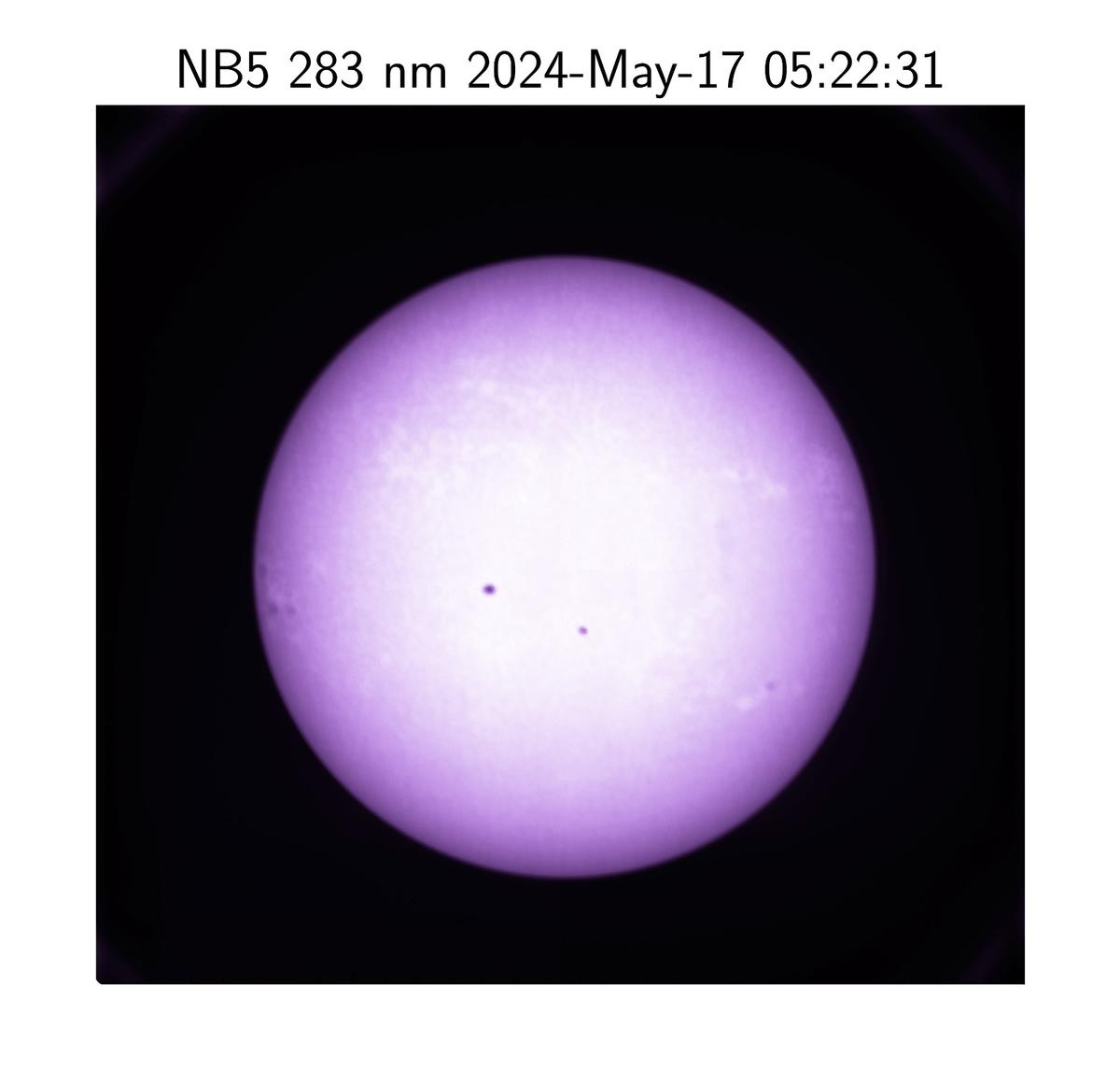
An image captured by SUIT and VELC instruments (Aditya-L1 mission) shows dynamic activities of the Sun during May 2024.
| Photo Credit:
ISRO
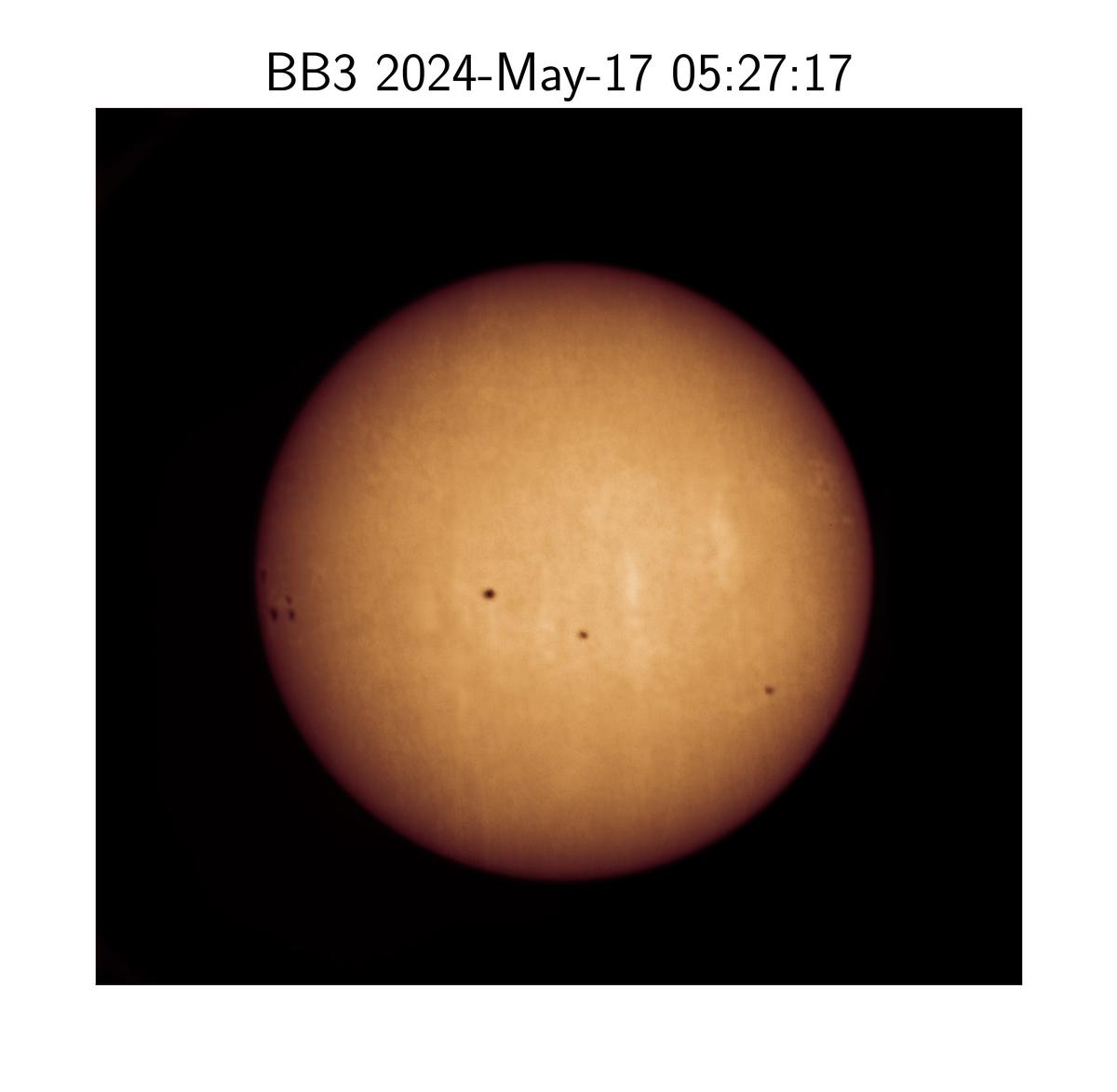
An image captured by SUIT and VELC instruments (Aditya-L1 mission) shows dynamic activities of the Sun during May 2024.
| Photo Credit:
ISRO
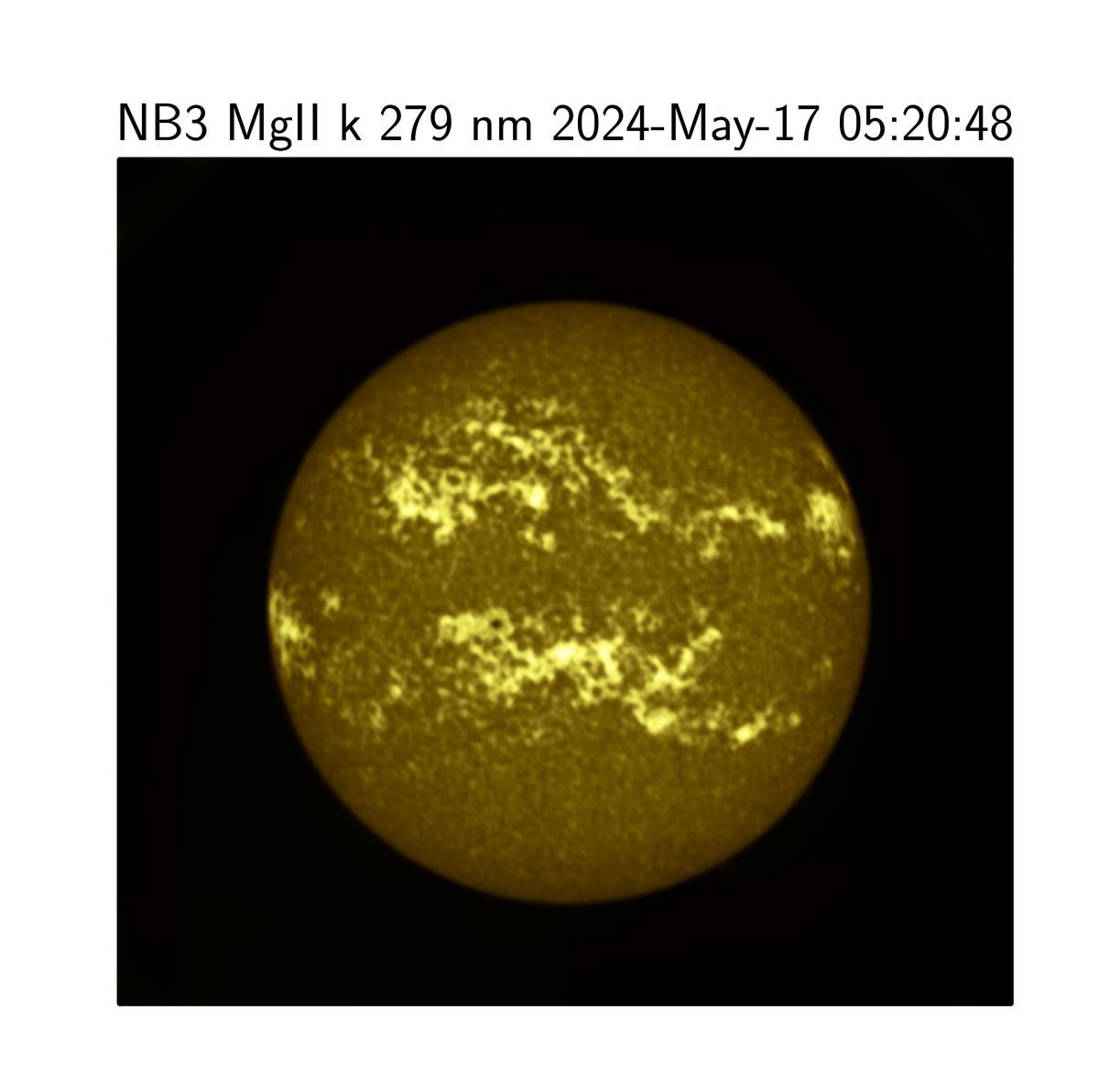
An image captured by SUIT and VELC instruments (Aditya-L1 mission) shows dynamic activities of the Sun during May 2024.
| Photo Credit:
ISRO
On June 10, ISRO released six images of the Sun taken by SUIT payload at different wavelengths. The images were acquired by the SUIT payload on May 17.
According to ISRO, these images will help in studying solar flares, energy distribution, sun spot, understanding and predicting space weather, monitoring solar activity and UV radiation over a wide wavelength range, and also aid in the study of long-term solar variations.
In addition, the VELC payload also carried out observations in one of the spectroscopic channels for the emission line 5303 Angstrom.
Raster scans of the solar corona were carried out on May 14 to capture the coronal activities in this particular spectral line.
Two other remote sensing payloads on board Aditya-L1 (SoLEXS and HEL1OS) captured these events between May 8 and 9 while the two in-situ payloads (ASPEX and MAG) captured this event on May 10 and 11 during its passage through the sun-earth L1 point (L1).
These observations were subsequently reported by ISRO, along with the observations made by the Chandrayaan-2 spacecraft, XPoSat as well as by Udaipur Solar Observatory-Physical Research Laboratory ground-based facility.






